In the Wilderness -- Essentials of Survival Instructor Certifications
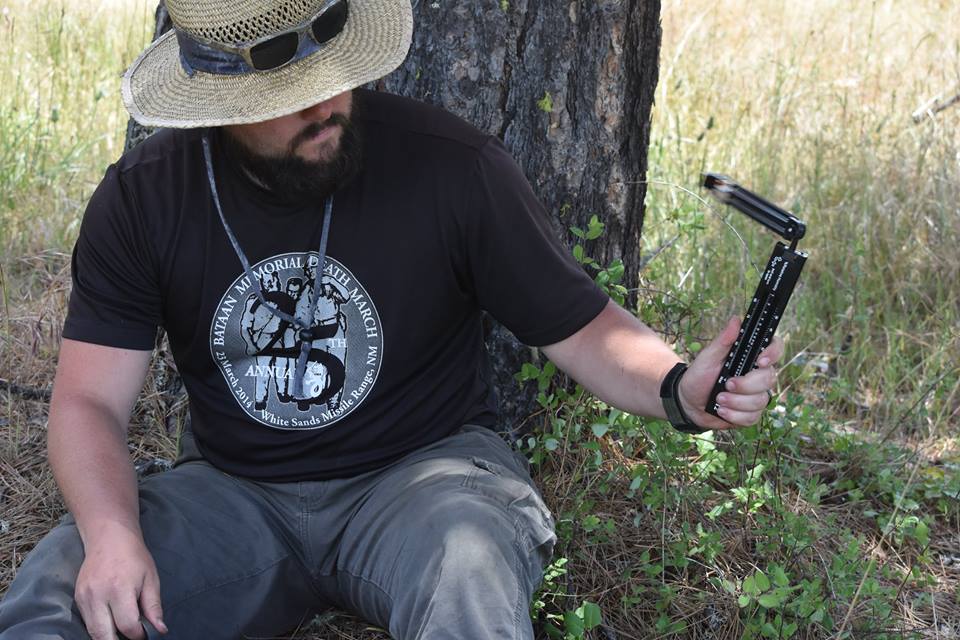
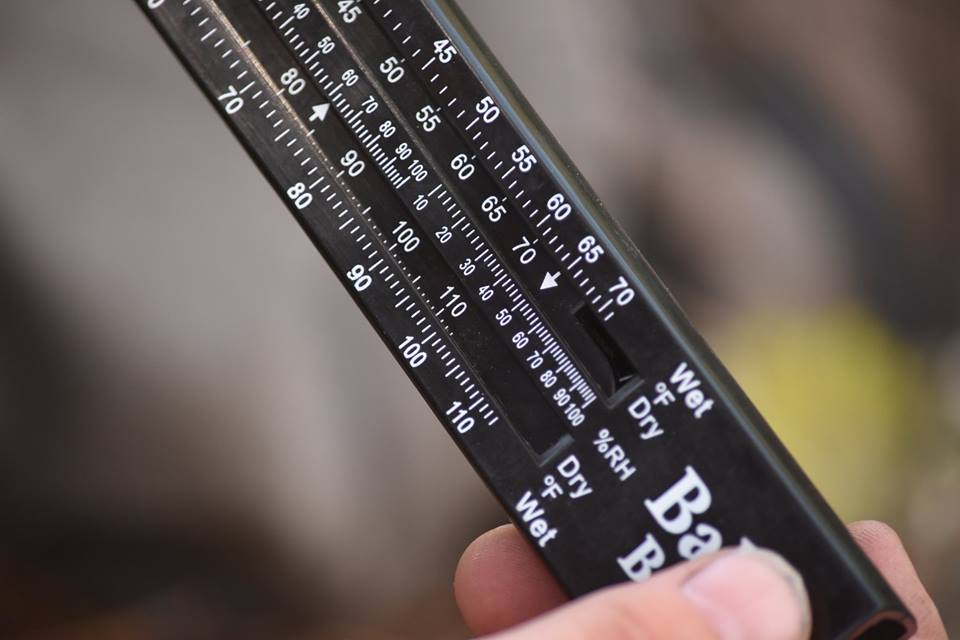
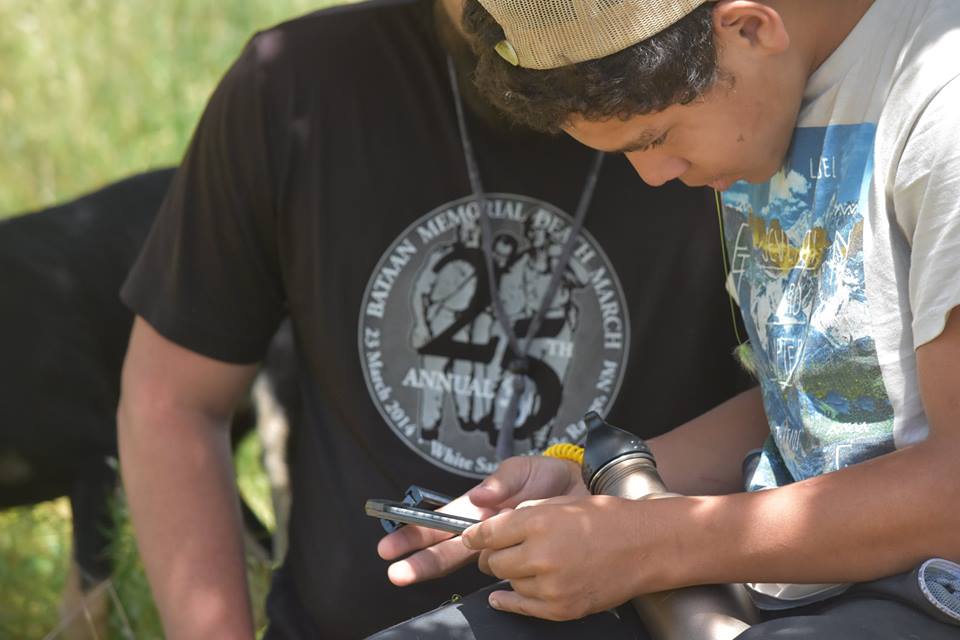
The Goal of In the Wilderness Basic Instructor Certification for Veterans
To train veterans to mastery in skills they have an interest in which are germane to our mission, in skills our students need, and identify skills they earned mastery in during their time of military service that is of value to our students. To prepare adults for mastery in the best practices and methods of mentoring combat veterans used at Northwestern Outdoor Leadership Institute and prepare the instructor candidate to use and teach the skills in EOS 01-07. At the end of their week of training they will demonstrate competence mentoring others these skills.
Our ultimate goal is to train staff for NOLI Campuses to train combat veterans.
Overview of the Essentials of Survival Block
Yes you should not go into the wilds without having mastery of these basic skills, you should not drive down a wilderness highway, and you should not leave your car without knowing these lifesaving skills. Mountain roads get washed-out, roads get blocked by downed trees and power lines, cars breakdown, hikers get separated from their group, leaders get the group lost or didn’t understand the difficulty of the trail, people get injured, the GPS may be wrong or failed. There are skills beyond survival we believe you should learn to have the most enjoyable wilderness experience each time you go out. We also go over the pros and cons of various gear for your own particular needs, you will get to try out gear before you decide to buy. You will discover the more you know the less you need to buy and carry.
This workshop is the starting point, these are the skills we want all my hiking companions to have before going out so we all have a good experience. After completing all of the workshops in Essentials of Survival and Deep Wilderness Access: Off Road Driving and Deep Wilderness Access: Backpacking you could start leading deep wilderness backpacking trips. You may also decide that you would like to get certified to teach any of the workshops we teach or become a mentor working with us; this is your starting point. The point is to have the skills to have great memories and continue to enjoy what wilderness areas offer for many years and to raise your bar to have new adventures with great experiences under our mentorship.
Overview of Veteran Mentor Certification
The priority of this class is certifying the vets to mentor EOS 01 Basic and EOS 02 Fire. After completion of mastery of the skills taught in these two workshops the vets may co-lead those two workshops. The vets may also work on the skills of workshops included in the Essentials of Survival Blocks (EOS 03-07)
The veterans will develop with their mentor a course of work to meet their own needs to meet their own personal goals. Sunday – Thursday with the help of their mentor, the vets will work on mastery of those skills, Friday through Sunday the candidates will demonstrate mentoring those skills they have mastery of to the participants attending EOS workshops.
In follow up trainings the vets will work on completing the remainder of the EOS block of workshops. The candidates may certify in individual skills or earn certification in all skills to conduct any or all of the following Essentials workshops.
After successfully co-leading 3 sessions of a workshop you may be certified to lead that workshop on your own.
Please Note: EOS 01 and EOS 02 are required before taking all other workshops we offer. You must have the basic skills mastered of E01 and E02 before moving on to additional skills workshops as they build on these essential basic skills.
“This training is total immersion and was recently described by a veteran as “field exercises without the push-ups.” Micheal Thornhill veteran
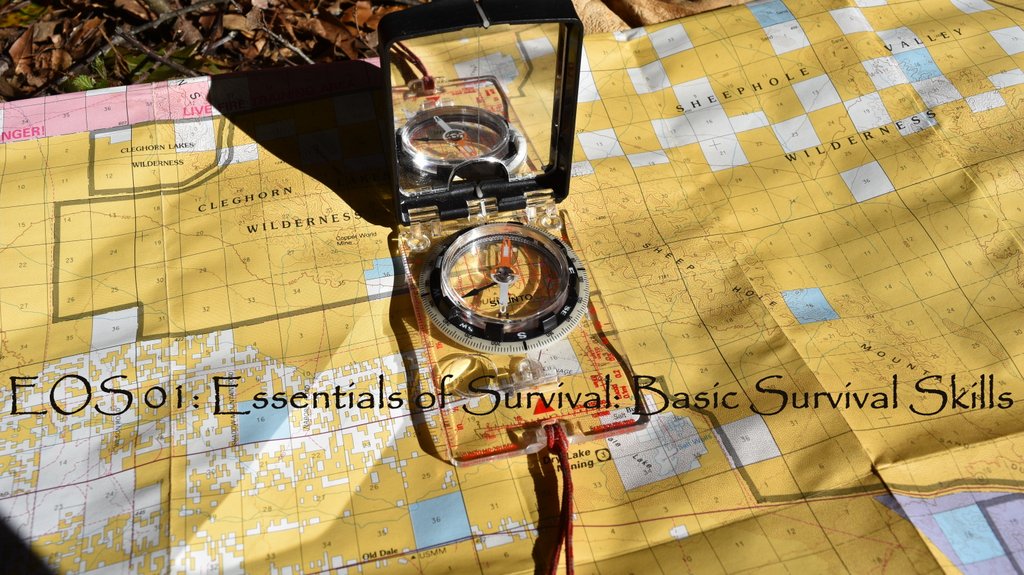
Session EOS 01: Basic Survival Skills
These are the most basic skills necessary to have as well as making informed decisions in selecting basic gear to have an enjoyable hiking, hunting, or backpacking trip or to survive if seperated from the leader, or to work to become a leader of groups.
Please Note: You must have these basic skills mastered of EOS-01 and EOS-02 before moving on to additional skills workshops as they build on these skills.
Demonstrate Knowledge of Hazards
This is an essentials skills of place and is specific for each venue the candidate will mentor in. Before teaching in a new location the candidate must do an assement with a mentor of the hazards of place.
Ethos of Northwestern Outdoor Leadership Institute
- Leave No Trace (LNT)
- Leave It Better Than How You Found It (LIBTHYFI)
We teach the the tenits of Leave No Trace (LNT) but we also believe in and practice Leave It Better Than How You Found It (LIBTHYFI).
Good Hygiene in the Woods
Failure to follow good hygiene as simple as keeping hand clean when handling potable water or food can make a simple backpacking trip turn into a missurable if not survival situation you and others in your group.
Selecting and Assembling
- Survival kit
- Day hike pack
- Backpack for multiple overnights for 3 seasons Spring, Summer, or Fall
(Winter conditions is covered in advanced training)
The Basics of Keeping Your Head in an Emergency – S.T.O.P
- Sit
- Thing
- Observe
- Plan
The Most Basic Knots for Survival
- Slippery Clove Hitch
- Timber Hitch
- Sheep Bend
- Tug Boat
- Lineman’s
- Prusik
- Taught Line
- Truckers
- Toggle Hitch
Building a 5 Minute Shelter
Using only a poncho and cordage the candidate will build a shelter that will withstand wind and protect the candidate from wind and rain. The candidate will take their shelter down without cutting any cordage and pack it so that the shelter can be erected again at a moment’s notice.
Exposure – Hypothermia, Heat Exhaustion, and Heat Stroke
The candidate will understand the causes and symptoms exposure emergencies and will be able to describe the relationship between wet bulb temp and humidity and how that affects exposure.
The candidate will understand fully how to make layering effective, the properties different materials, and how material choice will contibute to comfort or heat exposure
Basic Navigation Using
- Compass (reciprocal heading)
- Altimeter
- Topo map
- Analog watch
- Natural navigation with the sun
Basic Wilderness First Aid
Must have wilderness first aid, CPR, and Stop the Bleed Training before taking this class
Signaling for Help
Surviving a Unplanned Night
Demonstrating staying warm on a cold night with only your street clothes
Selection of a Backpack
Selection of Hiking Boots
Selection of Bedding
Rain Protection

Session EOS 02: Fire
Humans evolved with fire it is key to our survival and growth. It keeps us warm, sterilizes water, it cooks our food; it signals that we need help, it is necessary to make tools, and it changes the brain chemistry. Yes an evening fire triggers the brain to release hormones to provide a good night’s sleep, to heal our bodies, to bond us, and to stimulate conversations of the past. The confidence you get when you know you can build fire with only that which you can find in nature raises you to a new level; this confidence will make you walk taller. Emergency fire making, primitive fire making, making earthen and hobo stoves and of course safety with fire.
We are living with the effect of over 100 years of fire suppression in our forest; we are living in the era of mega fires therefore fire safety is more important than at any other time in human history. This class has something for the newbie through that which will challenge a master. You will not only have these new skills but will build friction fire kits.
Fire Safety
- Be prepared to stop it before you ever start it!!!
- Know when not to start a fire – the skills of determining fire conditions
- Preparation for a safe fire – clearing fuel from above the ground, below the ground, and latter wood and tinder from the nearby trees, have firefighting tools at ready and have a plan
- Where to build or not build a fire
- The essentials of building a fire you can control
Backpacking Stoves
Candidates will compare and contrast the pros and cons of various fuel and configuation options when selecting and using backpacking stoves
The Missing Component
What they never taught you about fire, the missing component – organization
The Relationship of Heat and Temperature
What is the difference between measuring heat and temperature?
Heat Transfer Physics
The Slowing of Heat Transfer
The Value of Fire, its Effects on the Brain
Fire First Aid
Fire for a Purpose
Not one fire for all situations not one given fire for any situation, be it…
- Warmth
- Cooking
- Beauty
- Evasion
- Signaling
The Value of the Candle
The Tinder Bundle
Making Char Cloth
Ignition Sources
Primitive through modern and many you may not have thought of:
Fire from a Spark
- Start with what is going to catch the spark
- Ferrocerium rod
- Rock and Steel
- Electricity
Fire from Friction
- Materials that work
- Hand drill
- Bow drill
- Other method – not a required skill
Other Methods of Starting Fire
Not required skills
- Magnifying
- Other Methods
Finding fire starting material in nature
Basics of Cooking with Fire
The participants in this certification class will help cook meals in earthen stoves, dutch ovens, on hot rocks, on wood, in insulated boxes, over flame, and with various types of makeshift and commercial stoves. The skills of this fire class leads into the In the Wilderness Cooking Certification
5 Minute Fire Challenge
The challenge is to walk into the forest with nothing and have the knowledge and skill to find the proper materials and make fire in 5 minutes.
Session EOS 03: Shelter
You can survive 3 weeks without food, 3 days without water, but only 3 hours without shelter from cold or heat. Next to panic exposure is the number one killer in the backcountry. Every year people die in the US; this workshop will teach you all how to make a 5 minute shelter that will keep you dry and alive. We will also build various shelters for longer stays. Our K-12 school is outside rain or shine and in a comfortable environment. Brian has lived and taught and made and stayed in shelters to protect himself from the hot blowing sand of the deserts of the Owens Valley to subzero blowing snow of the mountains of northern Utah.
Revisiting the Importance of Shelter
Knots for Shelter Building
Revisiting the 5 Minute Shelter
Shelter for Only a Single Night
Shelter for Extended Winter Stays
Making appropriate shelter for extended foul weather stays with what is in the forest for comfort
Making Shelters in Other Biomes
Heating your Shelter Safely
Using Anemometer and the Psychrometer to Determine Wind Chill
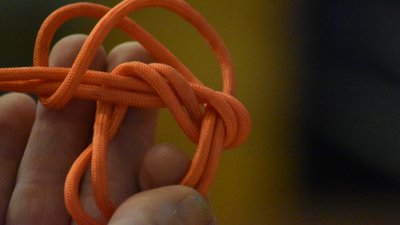
Session EOS 04: Thread, Cordage, Rope, Knots, Rigging, and Glues
Universal to all facets of survival and thriving is thread, cord, rope and glue. The use of knots and lines is integral to the success of making shelter, equitation, access, making clothing and gear, animal processing. This topic is definitely one of those that demonstrate the more skills you own the less gear you need to own or carry. We will learn to make these from fibers found in nature. We will learn to apply those tools to stitch, tie, bind, suspend, heft, fish, trap, and restrain. If the knot spills, the rope brakes at the knot, or the line must be cut because the knot has seized the wrong knot was used for the application.
Choosing the material – must know advantages, disadvantages, and appropriateness of each common material in relationship to common applications and conditions
Categories of Knots must be able to demonstrate the following knots in common applications and explain the advantages and disadvantage in various common applications
Stopper Knots & Hefting – Fig 8 and monkey fist
Loops At End of Line – tugboat, bowline, double dragon
In a Bite – Lineman (alpine butterfly), bowline in a bite, bell ringer’s with toggle
Multiple Loop – Spanish bowline, bowline in a bite
Hitches – Clove (including slippery clove hitch), Toggle, manger, and timber hitch
Fiction Hitches
– Prusik - Taught Line
Mechanical Advantage
Truckers Hitch from
- Bell Ringers Loop
- Prusik
- Figure of Eight
Bends – double sheet bend, figure of eight water knot
Binding
– Single Binding - Single Slippery Binding
Basic Rappelling and Belaying
Basic Rigging
Techniques for Making Thread
Techniques for Making Cordage
The meaning of synergy and how it is applied to cordage and teams and how to maximize synergy in making cordage and teams
Techniques for Making Rope
“Harvesting” of Synthetic Fibers
Harvesting and Prep of Plant Fibers – Stinging Nettle, Dogbane, Yucca, Douglas Iris
Harvesting and Prep of Animal Fibers
Sewing with a Sail Makers Awl – Running and locking stitch
Making and using Soaproot Glue
Making and using Hide Glue
Making and using Pine-pitch
Make Soaproot Brushes, Arrows, or…
Session EOS 05: Potable Water, Finding and Making Drinking Water
We don’t need to tell you the importance of water, this class is all about having water to drink and bathe. We start with locating surface water, determining the safety of the water, and making the water safe. You will learn to use store bought chemicals and equipment, making water safe with what you have in nature, making fresh water from sea water.
Locating Ground Water
- Topography
- Plants
Determining the Safety of the Water
Making the Water Safe with Store Bought Filters Comparing by Hands-on use of
- Filter straws
- Pleated paper filter pumps
- Ceramic filter pumps
- Gravity filters
Making Water Safe with Chemicals
Making Water Safe with Distillation
Making Water Safe with What You Have in Nature
Collecting Water from Air and Soil
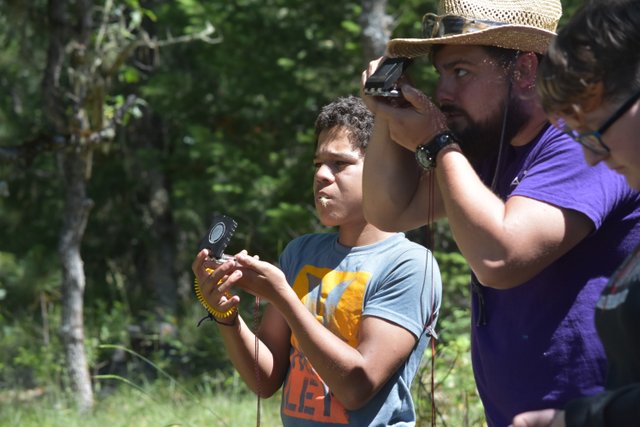
Session EOS 06: Navigation
Many people get themselves in trouble relying on electronic devices for navigation and seeking help. In this session we will go deep into finding your way in and out of unfamiliar territory using the basic navigation tools. We will determine your location from an object off in the distance without using a map. We will also develop skills in map making so you or others can find a given location, basic navigation with the stars, and telemetry.
Finding the North Star
Following a Storyline
Blazing a Trail
Determining Direction with an Analog Watch and the Sun
Determining Time with the Sun and a Compass
Choosing a Compass
Using a Compass
Choosing and Reading Maps
Setting Declination on Your Compass
Taking a Reading
Determining a Heading
Finding a Reciprocal Heading
Mapping a Trail with Multiple Way Points
Orienting the Map
The Altimeter
Finding Yourself on a Map Using Compass and Altimeter
Using Radio Telemetry
Determining Latitude and Longitude
Calculating Movement with Longitude and Latitude
Using Trig to Determine how Far You are from a Distance Object
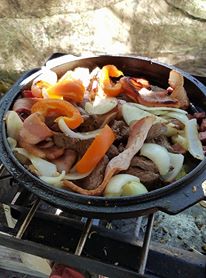
Session EOS 07: Cooking On the Fire
This class goes deep into cooking in Dutch ovens, cooking directly on the fire on rocks or planks, and cooking in pits. We will cook everything from game meats to pastries. No freeze dried food in this class. Depending on the time of the year and location of the class we may do some foraging.